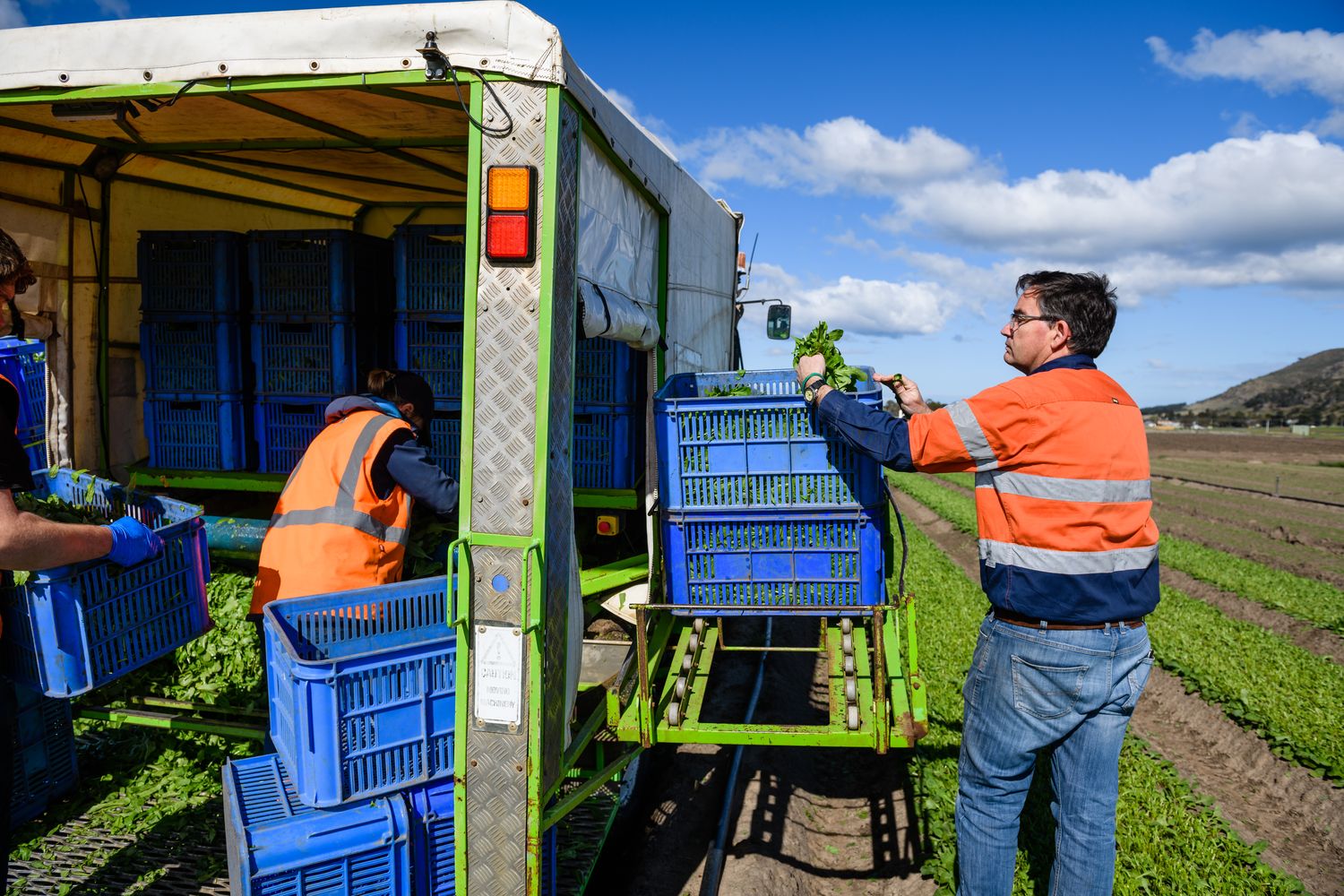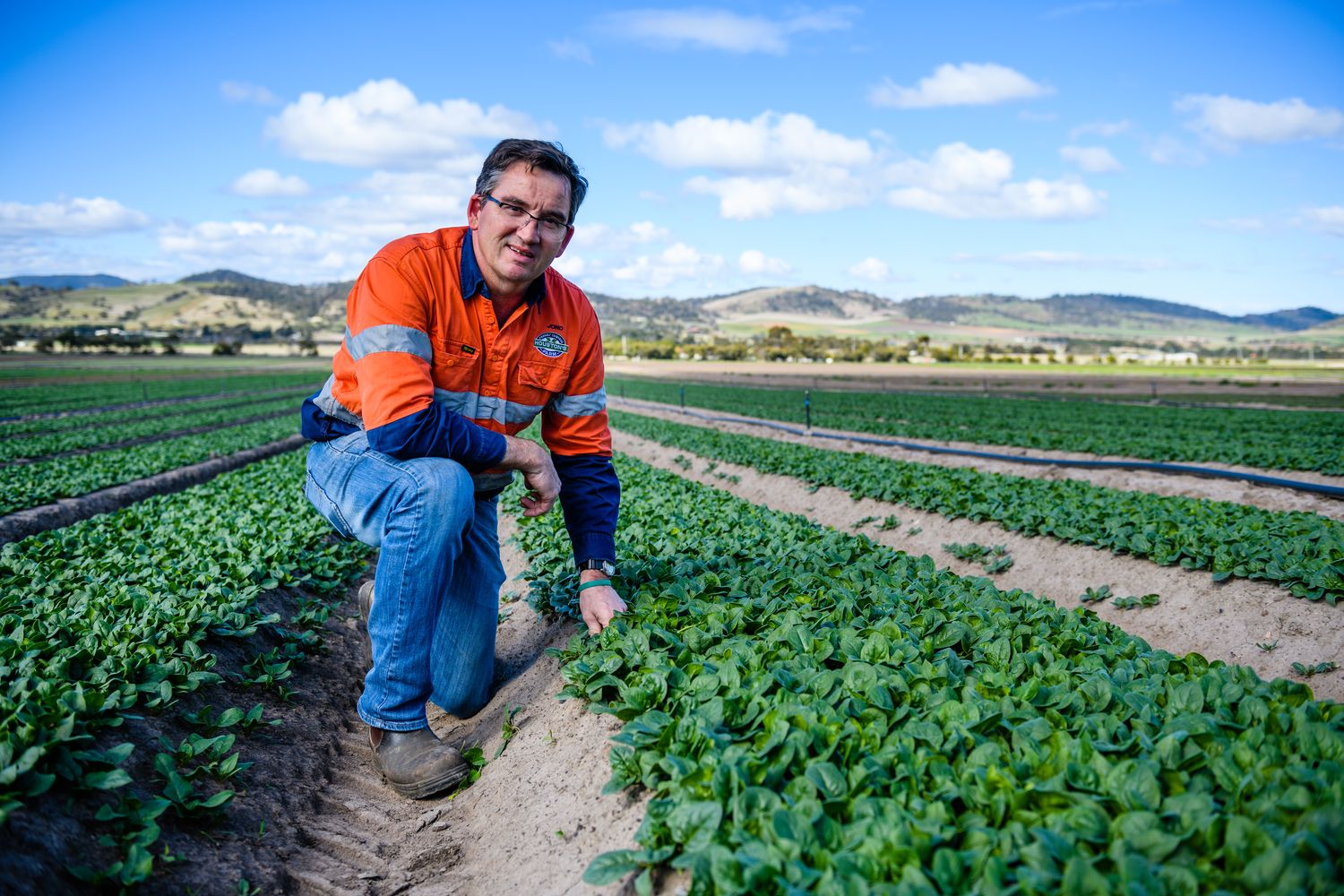Jono Craven: Turning over a new leaf
Knowledge transfer at the 2018 International Spinach Conference allowed a contingent of 14 researchers, agronomists and producers, including Tasmanian vegetable grower Jono Craven, to visit commercial growers and seed trial sites in Spain. These visits provided access to cutting-edge research, plant breeding and growing techniques.
Fast facts
Name: Jono Craven
Location: Forcett, Tasmania
Works: Houston’s Farm
Grows: Spinach, lettuce
For Tasmanian vegetable grower Jono Craven, his overall experience of attending the 2018 International Spinach Conference in Murcia, Spain, encompassed far more than the sum of its parts.
From growing on flat ground and de-risking production in polytunnels to better understanding physiology, seed production costs and biosecurity issues, the Farming Manager at Houston’s Farm in Cambridge wholeheartedly embraced all learnings from the eight-day tour in February as part of a 14-strong Australian contingent of researchers, agronomists and producers.
Through Knowledge transfer at the 2018 International Spinach Conference (VG17004), a strategic levy investment under the Hort Innovation Vegetable Fund that was facilitated by East Gippsland Vegetable Innovation Days, the insights Jono gained during the tour were even more productive considering that spinach breeding and seed production occurs primarily in the Netherlands, France and Denmark.
“I was able to gain a broad amount of knowledge from all sectors, from research to plant breeding to commercial growing, and then bring facets of all of those back to our business. It wasn’t just one aspect, but a combination of the collective knowledge and experience gained on the tour that I’ll remember most,” Jono says.
“For us to be able to access the plant breeders on the other side of the world and talk to them about their issues – and our alignment with those – was invaluable, because we’re largely geographically separated from them and they don’t come to Australia much.”

Discussing global challenges
Jono says the researchers and seed producers on the tour enjoyed discussing the topic of global plant breeding at the two-day conference. The issue of downy mildew and its latest strain, race 17, zeroed in on an issue familiar to Australian producers, particularly organic producers who can’t use fungicides.
Water quality (nutrients) and availability (drought) was another issue Spanish farmers were tackling, exacerbated in part by an overuse of fertilisers contaminating waterways with nitrogen.
“One of the things we saw in Spain was use of compost because they have low organic matter in their soils,” Jono says.
“They also had very strict nutrient-use requirements, due to environmentally sensitive areas around the coast. The government dictates that they are only able to use a fairly low amount of fertiliser, particularly nitrogen.”
After the conference, visits to seed producers, plant breeders and commercial growers provided practical revelations involving crop protection methods and foreign-object control.
“We saw people producing and using similar varieties to us, and we saw some different techniques that aren’t used in Australia,” Jono says.
“We saw people using one-metre-high crop barriers around fields to protect from plastic, insects and animals infesting their crops.”
Jono added that the large amount of plastic was a remnant of summer melon production where drip tape and plastic bed systems were not properly removed.
"For us to be able to access the plant breeders on the other side of the world and talk to them about their issues - and our alignment with those - was invaluable."
International learnings
Innovation also came into play in arid areas of Spain, with Jono and the other delegates witnessing a range of different growing practices.
“We saw one producer not using beds to grow so they were growing on flat ground, which is highly unusual and not really practiced in Australia because of the climate and soils,” Jono says.
“We also saw crop protection methods, such as people growing small areas of their crop in polytunnels, so they can de-risk their production.”
A personal highlight for Jono was seeing the scale of production innovations by English producers growing in Spain for the European winter market.
“This included harvesting crop in bulk on a large scale, and then cheaply harvesting, decanting and being able to send the product for two or three days in a truck to packing facilities in Europe and England,” he says.
Best of all, the new-found knowledge and industry contacts are already being put to good use at Houston’s Farm, resulting in the introduction of new varieties to the range and future plans.
Knowledge transfer at the 2018 International Spinach Conference has been funded by Hort Innovation using the vegetable research and development levy and contributions from the Australian Government.
This grower profile first appeared in Grower Success Stories, a levy-funded booklet published by AUSVEG to promote real results from levy investment, and was featured in the AUSVEG Weekly Update published 29 January 2019. If you’d like to subscribe to receive AUSVEG publications, use our online subscription form!
Photography credit: Loic Le Guilly

